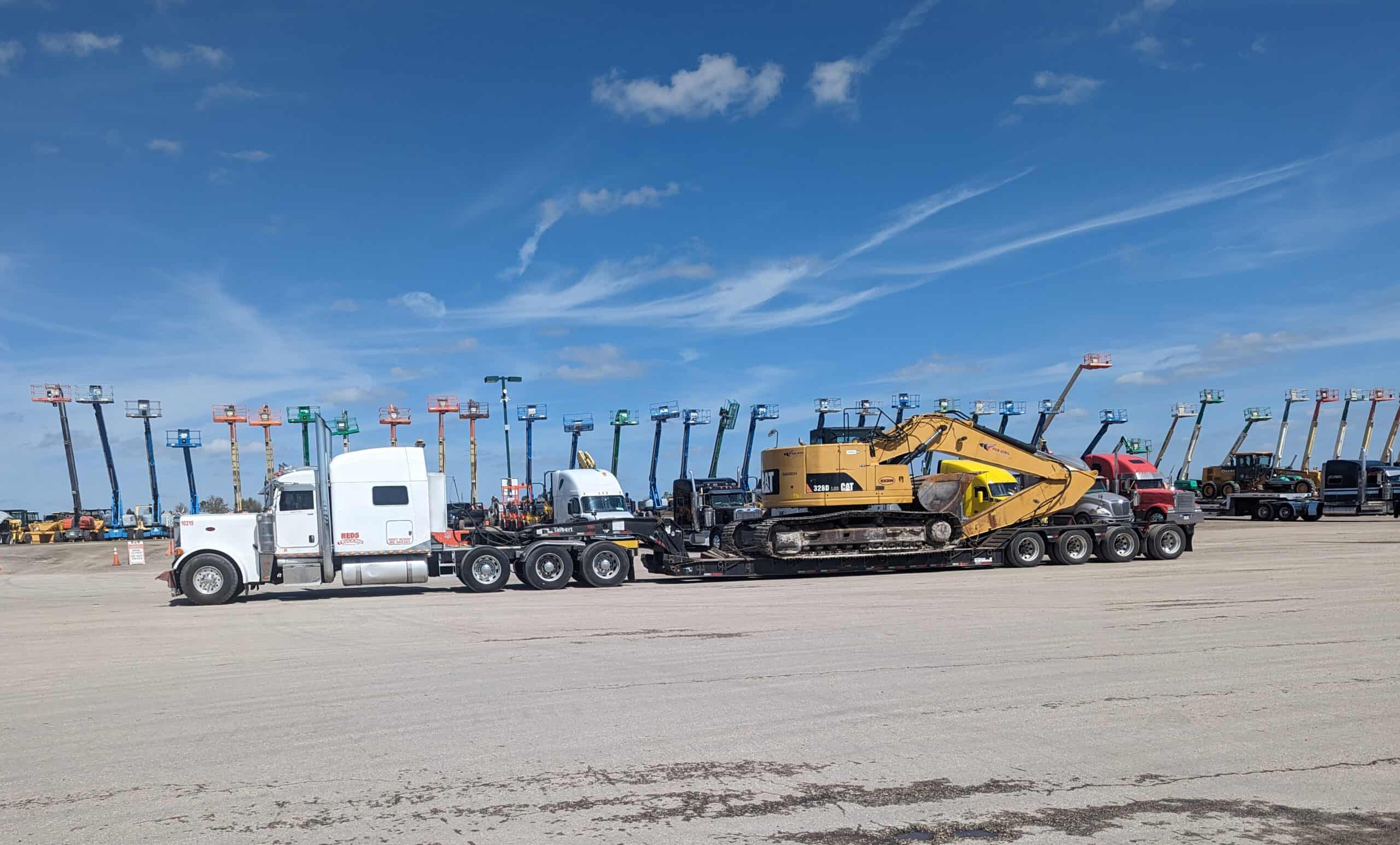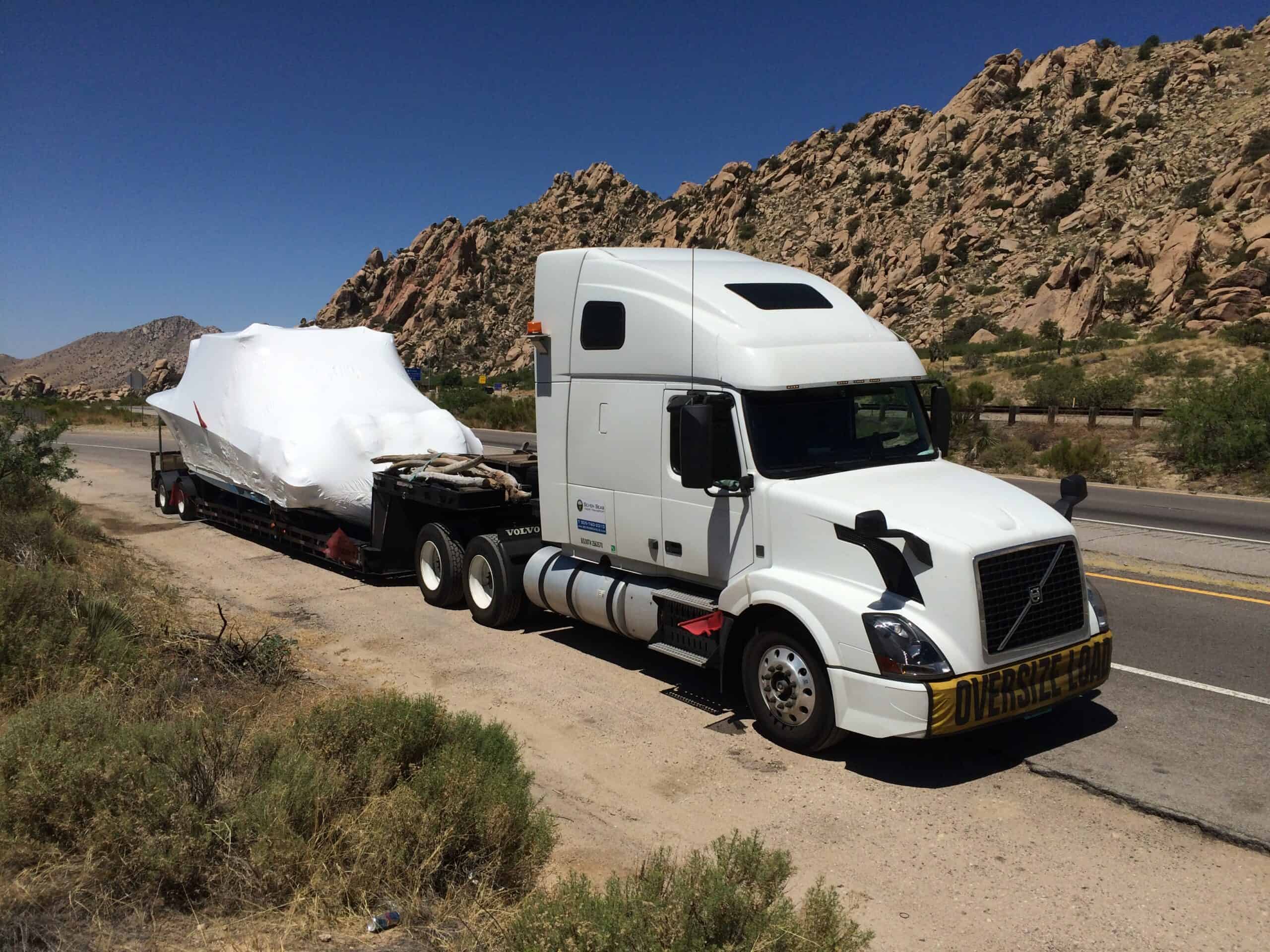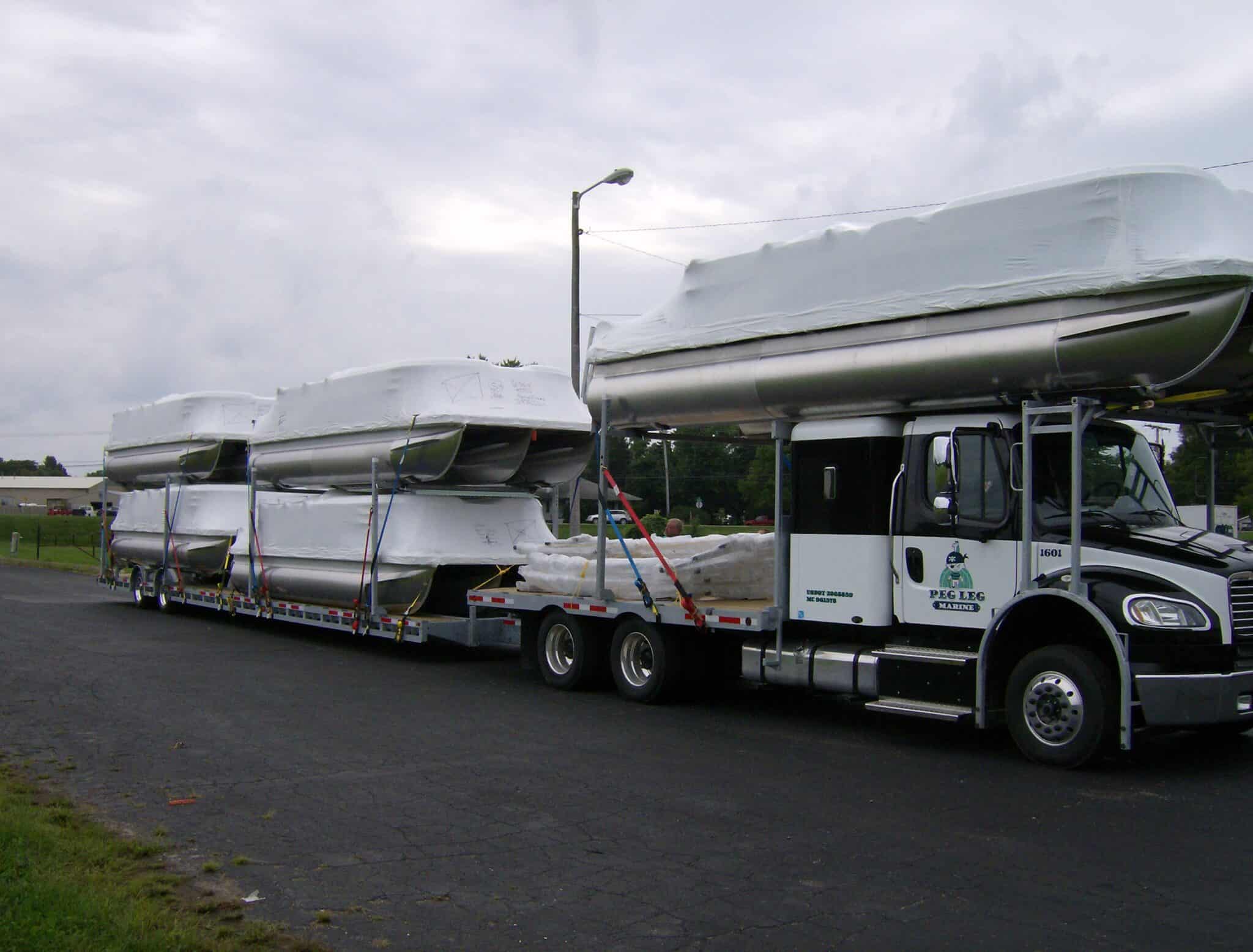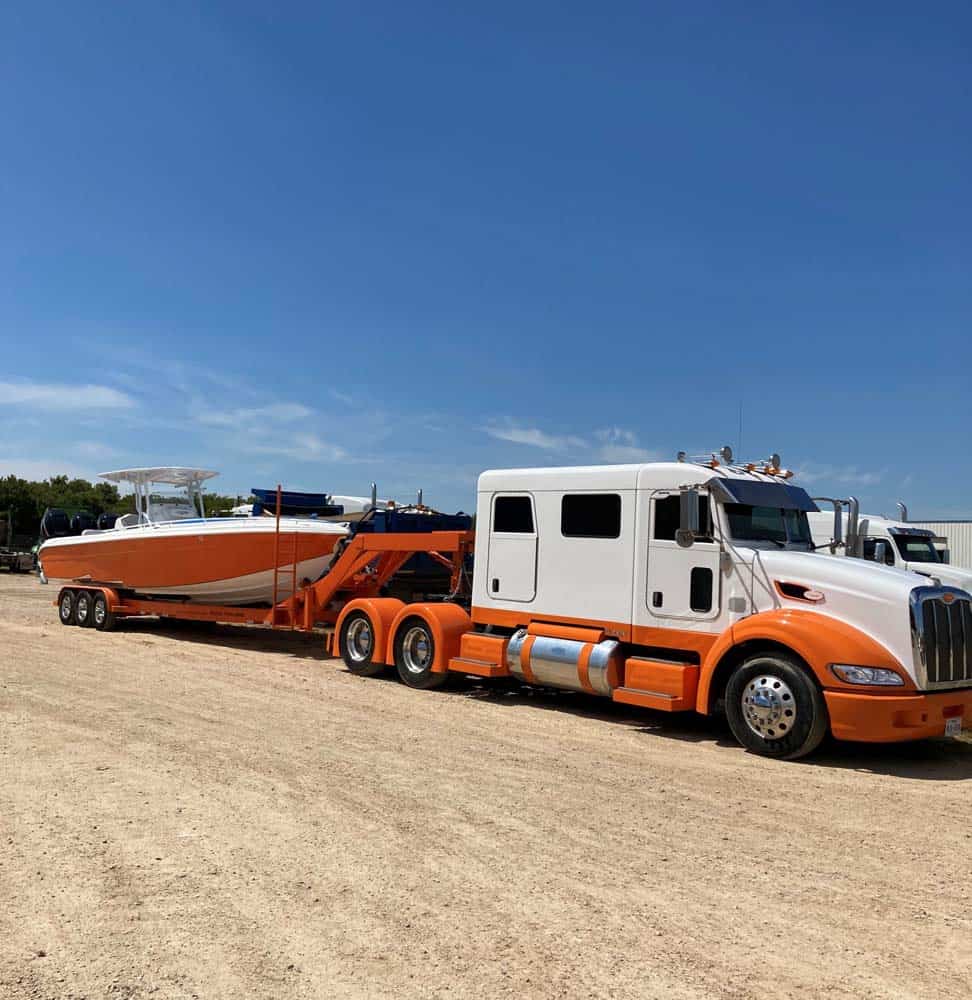Heavy Haul Insurance: What You Need to Know

When it comes to heavy haul transport, the stakes are high. Moving massive equipment or machinery demands meticulous planning, advanced logistics, and a keen focus on safety. However, even with the best-laid plans, accidents, damages, and unforeseen circumstances can still occur. This is where the importance of heavy haul insurance coverage comes into play. In this article, we delve into the world of heavy haul transportation insurance, exploring the various coverage types available, the factors impacting insurance costs, strategies for determining optimal coverage levels, steps to take in case of damage, and practical ways to reduce the risk of loss during transit.
Outline:
- What Types of Insurance Coverages Are Available for Heavy Haul Transport?
- What Factors Influence the Insurance Costs for Heavy Haul Shipments?
- How Do I Determine the Appropriate Level of Coverage for My Heavy Haul Cargo?
- What Steps Should I Take in the Event of a Claim or Damage to My Heavy Haul Shipment?
- How Can I Minimize the Risk of Loss or Damage During Heavy Haul Transport?
What Types of Heavy Haul Insurance Coverages Are Available for Heavy Haul Transport?
There are a number of different types of insurance coverage that can be purchased for heavy haul transport. Some of the most common types of coverage include:
- General liability insurance: This type of insurance covers you for damages that you cause to other people or property while transporting your heavy haul cargo. This is a very important type of coverage to have, as it can protect you from significant financial losses in the event of an accident.
- Cargo insurance: This type of insurance covers the cost of your cargo if it is lost, damaged, or stolen while in transit. Cargo insurance is essential for any heavy haul shipment that is worth more than a few thousand dollars.
- Commercial auto insurance: This type of insurance covers your truck and trailer in the event of an accident. Commercial auto insurance is required by law in most states, and it is a good idea to have even if it is not required.
- Workers’ compensation insurance: This type of insurance covers your employees if they are injured while working on your heavy haul transport project. Workers’ compensation insurance is required by law in most states, and it is a good idea to have even if it is not required.
- Endorsements: In addition to the basic types of insurance coverage listed above, you may also want to consider purchasing endorsements that provide additional coverage for specific risks. For example, you may want to purchase an endorsement that covers your cargo for weather damage or an endorsement that covers your truck for theft.
What Factors Influence the Insurance Costs for Heavy Haul Shipments?
The cost of insurance for heavy haul shipments will vary depending on a number of factors, including:
- The value of your cargo: The more valuable your cargo is, the higher your insurance premiums will be.
- The size and weight of your cargo: Larger and heavier loads are more difficult to transport and are therefore more likely to be damaged in an accident. This will also increase your insurance premiums.
- The route that you will be taking: If you are taking a route that is known for being dangerous or congested, your insurance premiums will be higher.
- The security measures that you will be taking to protect your cargo: If you are taking steps to protect your cargo from theft or damage, your insurance premiums will be lower.
- Your company’s claims history: If your company has a history of filing claims, your insurance premiums will be higher.
It is important to work with an insurance agent to determine the specific factors that will affect your insurance costs for your heavy haul transport project. The agent can help you to get the right coverage at the best price.
How Do I Determine the Appropriate Level of Coverage for My Heavy Haul Cargo?
- Your Cargo’s Value: The first step in determining the appropriate heavy haul insurance coverage is to accurately assess the value of your cargo. This evaluation should encompass not only the cost of the goods themselves but also any associated expenses such as shipping, handling, and potential downtime due to damage. A comprehensive understanding of your cargo’s value will guide you in selecting coverage that adequately safeguards your investment.
- Evaluate Potential Risks: Consider the unique risks that your cargo might face during transportation. Factors such as the nature of the goods, the route, and the mode of transportation can all influence the likelihood of damage or loss. For instance, if you’re transporting fragile machinery, the risk of damage might be higher than if you were transporting durable materials. By identifying these risks, you can choose coverage that specifically addresses the challenges your cargo may encounter.
- Review Contractual Requirements: If you’re working with clients, partners, or vendors, be sure to review any contractual obligations related to insurance coverage. Some agreements may stipulate minimum coverage requirements that you need to meet. Adhering to these requirements not only ensures compliance but also provides an additional layer of protection for all parties involved in the transportation process.
- Consider the Worst-Case Scenario: When determining the appropriate coverage level, it’s prudent to consider the worst-case scenario. Imagine the most catastrophic outcome—complete loss or irreparable damage to your cargo—and assess whether your chosen coverage would sufficiently protect you in such a situation. While it’s impossible to predict every potential scenario, this exercise can guide you toward selecting coverage that offers adequate financial protection.
- Balance Coverage and Cost: While comprehensive coverage is important, it’s essential to strike a balance between coverage and cost. Opting for excessive coverage may lead to unnecessarily high premiums, while inadequate coverage could leave you exposed to significant financial risks. Evaluate your budget alongside the potential impact of different coverage levels to find a balance that aligns with your needs.
What Steps Should I Take in the Event of a Claim or Damage to My Heavy Haul Shipment?
If your heavy haul shipment is damaged or lost, you will need to take the following steps to file a claim:
- Contact your insurance company as soon as possible. Do not delay filing a claim, as this could affect your chances of receiving a full payout.
- Provide your insurance company with a detailed description of the damage or loss. This should include photos or videos of the damage, as well as any documentation that you have regarding the value of your cargo.
- Provide your insurance company with documentation of the value of your cargo. This could include invoices, purchase orders, or appraisals.
- Cooperate with your insurance company’s investigation. This may involve providing them with access to your cargo, your truck, and any other relevant information.
Once your heavy haul insurance company has received all of the necessary information, they will start the claims process. This may involve sending an adjuster to inspect the damage, or it may simply involve reviewing the information that you have provided.
If your claim is approved, your insurance company will pay you for the cost of the damage or loss. However, there may be some limitations on your coverage, so it is important to read your policy carefully before you file a claim.
How Can I Minimize the Risk of Loss or Damage During Heavy Haul Transport?
Here are some tips on how to minimize the risk of loss or damage during heavy haul transport:
- Choose a reputable heavy haul carrier: A reputable carrier will have a good safety record and will take steps to protect your cargo.
- Secure your cargo properly: Properly securing your cargo will help to reduce the risk of damage in an accident.
- Insure your cargo: Insuring your cargo will protect you financially in the event of a loss or damage.
- Take steps to protect your cargo from the elements: Extreme weather conditions can damage cargo, so it is important to take steps to protect it from the elements.
- Monitor your cargo closely: Keep an eye on your cargo throughout the transport process to make sure it is not damaged.
Do You Need Help or Have More Questions About Shipping Your Heavy Equipment?
VeriTread is your go to solution for heavy haul. We can transport your heavy machinery to any destination in North America in a safe and timely manner. We are experts with connecting you with a transport provider that can handle all the paperwork, select the right trailer and driver, and chart the most efficient route.
VeriTread moves thousands of machines every year and can quickly generate a reliable estimate on the go. Our extensive specs and dimensions database of 60,000+ items, ensures you spend less time researching and more time putting your equipment to work. The VeriTread Shipper quote process is the simplest way to receive competitive quotes from vetted transport providers. Follow these easy steps and you will receive a quote in under one minute:
- Select Ready To Ship from the Freight Options Page
- Enter a Manufacturer & Model
- Verify or Edit Your Machine Dimensions
- Enter Pickup & Drop Off Locations
- Your Quote is Ready!
CATEGORIES
recent posts

Anchoring Your Budget: Understanding and Managing Boat Transport Costs

Your Guide to Boat Transport Regulations and Permits


